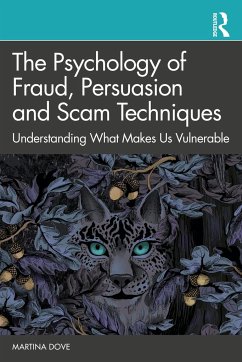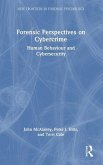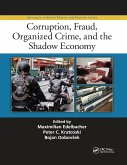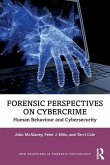The Psychology of Fraud, Persuasion and Scam Techniques provides an in-depth explanation of not only why we fall for scams and how fraudsters use technology and other techniques to manipulate others, but also why fraud prevention advice is not always effective.
Starting with how fraud victimisation is perceived by society and why fraud is underreported, the book explores the different types of fraud and the human and demographic factors that make us vulnerable. It explains how fraud has become increasingly sophisticated and how fraudsters use communication, deception and theories of rationality, cognition and judgmental heuristics, as well as specific persuasion and scam techniques, to encourage compliance. Covering frauds including romance scams and phishing attacks such as advance fee frauds and so-called miracle cures, the book explores ways we can learn to spot scams and persuasive communication, with checklists and advice for reflection and protection.
Featuring a set of practical guidelines to reduce fraud vulnerability, advice on how to effectively report fraud and educative case studies and examples, this easy-to-read, instructive book is essential reading for fraud prevention specialists, fraud victims and academics and students interested in the psychology of fraud.
Starting with how fraud victimisation is perceived by society and why fraud is underreported, the book explores the different types of fraud and the human and demographic factors that make us vulnerable. It explains how fraud has become increasingly sophisticated and how fraudsters use communication, deception and theories of rationality, cognition and judgmental heuristics, as well as specific persuasion and scam techniques, to encourage compliance. Covering frauds including romance scams and phishing attacks such as advance fee frauds and so-called miracle cures, the book explores ways we can learn to spot scams and persuasive communication, with checklists and advice for reflection and protection.
Featuring a set of practical guidelines to reduce fraud vulnerability, advice on how to effectively report fraud and educative case studies and examples, this easy-to-read, instructive book is essential reading for fraud prevention specialists, fraud victims and academics and students interested in the psychology of fraud.
"This book is an engaging study of the modern-day plague of internet, email and personal scams, so often targeted at the most vulnerable in society. Written in accessible style, the book combines the personal and the scientific. Retelling everyday examples, it offers a captivating account of how we fall victim to fraud and theft, and suffer their emotional consequences, as and because we fail to recognise the traps of deception. Dove dissects the evidence, and rooting her account in scientific theory, she urges the reader to learn and prepare to detect the fraud instead of succumbing to it."- Dr. Andreas Cebulla, Associate Professor, Flinders University of South Australia
"Dr. Dove has produced a comprehensive but accessible text that summarizes the current social science research on frauds and scams. The chapters progress logically from defining fraud in all its variations, to describing the process by which victims are defrauded, to offering solutions and preventative measures. The case studies she presents are exceptional and provide the reader with real-world examples. As a professor and a public educator, I believe this book could be used in a classroom, by working professionals, and citizens who wish to protect themselves from frauds and scams." - Dr. Roderick Graham, Associate Professor of Sociology and Criminal Justice, Old Dominion University
"An exceptional piece of work that unpacks what it is to be a victim, an observer and even a perpetrator of different types of fraud. What Dr. Dove has managed to do here is remarkable, giving astute academic analysis alongside practical advice, examples and explanations in a definitive resource on both the art and science of the scam." - Jenny Radcliffe, Director, Human Factor Security
"A fabulously interesting read. Dr Martina Dove provides a window into the methods of criminals whilst giving a valuable insight into how criminals use our emotional responses to defraud. This is a book for all, fraud prevention professionals, academics and the public. This book could assist in stopping you and those around you from becoming a victim to this despicable crime." - Tony Murray, Former National Economic Crime and Fraud Protect Officer for National lead force, City of London Police
"Dr. Dove has produced a comprehensive but accessible text that summarizes the current social science research on frauds and scams. The chapters progress logically from defining fraud in all its variations, to describing the process by which victims are defrauded, to offering solutions and preventative measures. The case studies she presents are exceptional and provide the reader with real-world examples. As a professor and a public educator, I believe this book could be used in a classroom, by working professionals, and citizens who wish to protect themselves from frauds and scams." - Dr. Roderick Graham, Associate Professor of Sociology and Criminal Justice, Old Dominion University
"An exceptional piece of work that unpacks what it is to be a victim, an observer and even a perpetrator of different types of fraud. What Dr. Dove has managed to do here is remarkable, giving astute academic analysis alongside practical advice, examples and explanations in a definitive resource on both the art and science of the scam." - Jenny Radcliffe, Director, Human Factor Security
"A fabulously interesting read. Dr Martina Dove provides a window into the methods of criminals whilst giving a valuable insight into how criminals use our emotional responses to defraud. This is a book for all, fraud prevention professionals, academics and the public. This book could assist in stopping you and those around you from becoming a victim to this despicable crime." - Tony Murray, Former National Economic Crime and Fraud Protect Officer for National lead force, City of London Police








